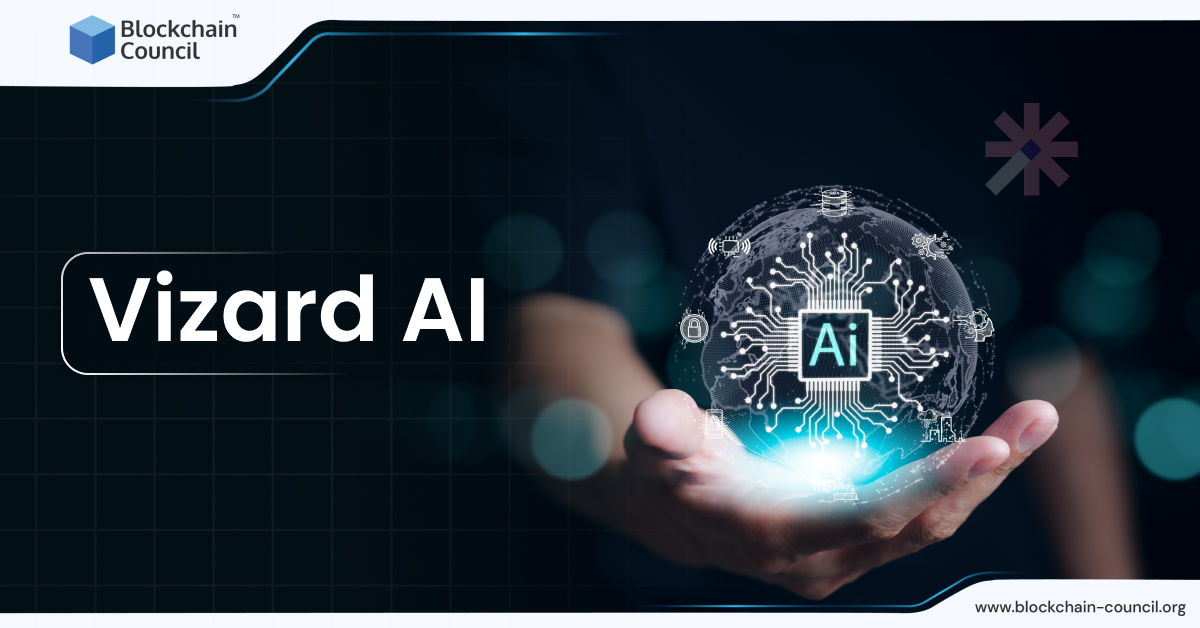
- Blockchain Council
- January 16, 2025
AI Jobs
How to get a high-paying job in AI?
- Develop strong technical skills in programming, mathematics, and machine learning.
- Consider pursuing AI certifications to validate your expertise.
- Gain real-life experience through projects, internships, or competitions.
- Hone non-technical skills like communication, problem-solving, and adaptability.
- Stay updated with the latest AI trends and technologies.
Which job has the highest salary in AI?
- Jobs in AI can vary in salary, but roles like AI research scientists, machine learning engineers, and AI architects tend to offer some of the highest salaries in the field.
How do I land a job with AI?
- Start by building a strong foundation in AI through education and self-study.
- Gain practical experience by working on AI projects and internships.
- Network with professionals in the AI industry.
- Apply for AI job openings and tailor your resume to showcase relevant skills and experience.
- Prepare for interviews by demonstrating your technical and problem-solving abilities.
Is it hard to get a job in AI?
- Getting a job in AI can be competitive and challenging.
- It requires a strong technical skill set and a willingness to continuously learn and adapt to the evolving field.
- However, with dedication, the right skills, and practical experience, it is achievable.
In today’s rapidly evolving job market, artificial intelligence (AI) has emerged as a hotbed of opportunities. With the demand for AI professionals soaring, many are looking to secure high-paying positions in this field.
According to industry experts, global revenues from AI enterprise applications are predicted to reach an impressive USD 31.2 billion by 2025, showcasing the immense growth potential in this field. This surge in AI technology has led to a significant increase in job opportunities, particularly in roles requiring generative AI skills. Since the introduction of advanced AI models like ChatGPT, jobs necessitating these skills have witnessed a staggering 20-fold increase. What’s more, this trend is anticipated to continue its upward trajectory in 2024.
One of the driving factors behind the rise in AI job opportunities is the generous compensation offered by leading companies. Giants like Netflix are offering annual salaries for AI roles that can go as high as $900,000. This substantial compensation illustrates the high demand for individuals with AI expertise, reflecting the value placed on their skills across diverse industries.
However, breaking into the AI industry isn’t a walk in the park. It requires the right strategies and skills to crack the code to a rewarding AI career. If you’re searching for a high-paying AI job, this article will guide you through the essential steps to make your dream a reality. So let’s dive in!
How to get A high-paying job?
Technical Proficiency
To land a high paying AI job, it is important to have the following technical proficiency:
Programming Proficiency
Mastering programming is a foundational skill for AI. Python is the go-to language for AI development due to its versatility and extensive libraries. A deep understanding of Python, including advanced features and libraries like NumPy and Pandas, is crucial. Proficiency in data structures, loops, and conditional statements is necessary for efficient data manipulation. Solid programming skills are the gateway to creating AI models and conducting data analysis effectively.
Mathematical Foundation
A strong mathematical foundation is essential for comprehending the inner workings of AI algorithms. Linear algebra plays a central role in AI, with matrix operations and eigenvalues being fundamental concepts. Proficiency in calculus, including derivatives and integrals, is vital for optimizing AI models. Probability theory, with concepts like conditional probability and Bayes’ theorem, underpins many AI algorithms. Statistical knowledge, including hypothesis testing, regression analysis, and understanding statistical distributions, is key to interpreting AI results.
Machine Learning Algorithms
AI professionals need a thorough understanding of machine learning algorithms. This includes linear regression, a fundamental technique for regression analysis. Logistic regression is used in classification tasks, while decision trees and random forests are essential for classification and regression. Support vector machines are powerful for classification, and k-means clustering is vital for unsupervised learning. Ensemble methods, which combine multiple models, offer improved predictive accuracy.
Data Preprocessing
Before AI algorithms can work their magic, data must be prepared. Data preprocessing involves collecting, cleaning, and transforming data. This includes handling missing data, detecting outliers, and engineering features to improve model performance. Efficient data scaling and encoding of categorical variables are crucial to ensure the data is in a suitable format for AI algorithms.
AI Frameworks
AI frameworks like TensorFlow and PyTorch are the building blocks for deep learning. These frameworks allow you to create and train complex neural networks, convolutional neural networks (CNNs) for image analysis, and recurrent neural networks (RNNs) for sequential data tasks. Proficiency in using these frameworks empowers you to work on diverse AI applications.
Deep Learning
Deep learning forms the backbone of AI applications such as image recognition, natural language processing, and generative tasks. It involves understanding neural network architectures, activation functions, and optimization algorithms. Building and training deep learning models is a fundamental skill, as it allows you to tackle intricate AI problems effectively.
Also Read- 5 Must-Have AI Skills In 2024
Natural Language Processing (NLP)
For AI tasks related to language processing, NLP techniques are indispensable. Proficiency in NLP involves tasks like tokenization, part-of-speech tagging, and sentiment analysis. Libraries like NLTK and spaCy are valuable tools for these tasks, and a deep understanding of their usage is essential.
Reinforcement Learning
Reinforcement learning is crucial for tasks involving decision-making and control. Understanding concepts like Markov decision processes and Q-learning is key. Proficiency in implementing and training reinforcement learning agents for applications like game playing and control systems broadens your AI skill set.
Data Visualization
Effective data visualization is essential for conveying insights from data analysis. Tools like Matplotlib, Seaborn, and Plotly enable you to create clear and insightful visualizations. The ability to communicate data-driven insights through compelling visual representations enhances your capacity to present AI results.
Model Evaluation and Tuning
Model evaluation metrics like accuracy, precision, recall, F1-score, and ROC curves are used to assess AI model performance. Proficiency in these metrics ensures that you can accurately evaluate the effectiveness of your models. Hyperparameter tuning, accomplished through techniques like grid search and random search, optimizes model performance for better results.
Version Control
Version control, notably Git, is indispensable for collaborative AI development. It allows multiple team members to work on code simultaneously while tracking changes, ensuring code integrity and facilitating seamless collaboration.
Cloud Computing
AI solutions are often deployed and scaled on cloud platforms like AWS, Azure, and Google Cloud. Proficiency in these platforms is beneficial for managing AI projects efficiently in a cloud environment. Understanding their capabilities and usage is a valuable asset for AI professionals.
Also Read- How Can Developers Use Google Bard?
Get Certified with Blockchain Council
Certifications are your proof of competence. Employers want assurance that you have the skills needed for the job. Here’s why certification matters:
- Credibility: When you hold a certification, you’re telling potential employers, “I have the knowledge and skills required for this role.” It’s a badge of credibility, a clear signal that you’re serious about AI.
- Validation of Expertise: AI is a complex field, and it’s ever-evolving. Certifications validate your expertise by ensuring you meet specific standards. This reassures employers that you’re up to the task.
- Practical Knowledge: Certifications aren’t just about theory; they’re about practical skills. They equip you with the hands-on experience necessary to tackle real-world AI challenges. This is something that sets you apart from the competition.
- Career Advancement: Certified professionals often enjoy better career opportunities. Higher-paying roles are often reserved for those who can demonstrate their capabilities through certification.
- Industry Recognition: Certain certifications are recognized and respected throughout the AI industry. For instance, certifications from organizations like the Blockchain Council hold substantial weight and can open doors to high-paying positions.
- Networking: While pursuing certification, you’ll also have the chance to network with experts and fellow learners. This can lead to job referrals and recommendations, further enhancing your job prospects.
- Salary Benefits: The bottom line is that certified professionals tend to command higher salaries. Employers are willing to pay more for the assurance that you bring specialized skills to the table.
Also Read- Top 5 Generative AI Models to Watch Out For in 2024
Best AI Certifications to Land a High-paying AI Job
We know why certification matters to land a high-paying AI job. But in this world full of certifications, what are the best AI certifications that will certainly help you dominate the field of AI? Below are top 7 AI certifications by the Blockchain Council to boost your career:
Certified Chatbot Expert™ Certification
This certification focuses on chatbot development and design, offering a 6-hour self-paced course with lifetime validity. It’s ideal for Chatbot Developers, Designers, and AI Prompt Engineers, providing proficiency in natural language processing in Python.
Certified BARD AI Expert
The BARD AI Expert program, spanning 5 hours with lifetime validity, emphasizes creative content generation using AI. It’s suited for Generative Art Designers and AI Prompt Engineers, delving into art, music, text, and design creation.
Certified Generative AI Expert™
Designed for AI-driven creativity, this 7-hour program with lifetime validity enhances skills in content creation, including art, music, text, and design. It caters to Generative Art Designers and AI Prompt Engineers.
Certified Prompt Engineer™ Certification
This 6-hour certification focuses on optimizing language models, emphasizing prompt design and conversation generation. Ideal for Conversational AI Developers and AI/ML Data Analysts, it provides expertise in eliciting accurate AI responses.
Certified ChatGPT Expert Certification
A 7-hour program with lifetime validity, this certification equips professionals with ChatGPT fundamentals, including natural language processing and practical use cases. It benefits ChatGPT Developers, Designers, and AI Prompt Engineers.
Certified Artificial Intelligence (AI) Expert™ Certification
A 6-hour course with lifetime validity, this certification introduces beginners to AI fundamentals, including machine learning and natural language processing. It suits aspiring AI/ML Engineers, Data Scientists, and AI Prompt Engineers.
Certified Artificial Intelligence (AI) Developer™ Certification
This 12-hour certification, offering lifetime validity, delves deep into AI technologies, including neural networks and data mining. It’s perfect for AI/ML Engineers, Data Scientists, and AI Prompt Engineers, providing expert-level AI understanding.
Also Read- How Can Developers Use Google Bard?
Get Real-Life Experience
- Real-World Application: AI is a field where theoretical knowledge alone is not enough. The complexities and nuances of AI can only be fully grasped through hands-on experience with real-world projects. Engaging with actual AI applications allows you to understand how AI methods can be implemented in various practical settings, such as developing computer vision programs or machine learning models.
- Market Demand: The AI industry is experiencing rapid growth, and with that comes a significant demand for skilled professionals. Companies are looking for individuals who can apply AI knowledge practically to innovate and solve complex problems. Having practical experience can set you apart from the competition and lead to more lucrative opportunities.
- Continuous Learning: AI is a fast-evolving field, requiring continuous learning and adaptation. By engaging in practical work, you’re more likely to stay updated with the latest technologies and methodologies. This could involve contributing to open-source projects, participating in Kaggle competitions, joining AI hackathons, and creating your own AI projects.
- Skill Enhancement: Practical experience allows you to refine and develop your skills in a way that theoretical learning cannot. This includes improving coding skills, learning from experienced developers, and building a portfolio that showcases your capabilities to potential employers.
- Problem-Solving: By working on diverse projects and challenges, you learn to approach problems from different angles. This problem-solving ability is highly valued in the AI job market, as it demonstrates your capacity to innovate and tackle complex issues.
- Networking: Participating in internships, hackathons, and collaborative projects can expand your professional network. These connections can be invaluable when looking for job opportunities and can also provide mentorship as you navigate your career.
- Data Proficiency: A significant part of AI work involves data handling. Volunteering to work with data for nonprofits or academic projects can hone your data preparation, cleaning, and visualization skills, which are essential for any AI role.
Obtain Non-Tech Skills
In the dynamic realm of AI, the significance of non-technical competencies cannot be overstated. Beyond the intricacies of algorithms and programming, possessing a diverse skill set can significantly augment one’s ability to excel in high-paying AI roles. Here’s why you must have the following non-tech skills to land a high-paying AI job:
- Communication: Effective articulation of AI concepts to a non-technical audience is pivotal. Mastery of clear and concise communication facilitates the dissemination of complex AI insights. Proficiency in this area is a hallmark of a proficient AI practitioner.
- Problem-Solving: AI professionals are chiefly concerned with addressing tangible real-world challenges. Proficiency in problem-solving is a cornerstone skill. The capacity to dissect intricate problems and devise innovative solutions is not only advantageous but indispensable.
- Project Management: In the context of AI, managing projects is akin to conducting an orchestra. Proficiency in project management ensures the seamless orchestration of resources and stakeholders. This skill augments one’s effectiveness in AI initiatives.
- Creativity: Contrary to misconceptions, creativity plays a pivotal role in AI. Novel approaches and imaginative thinking can lead to breakthroughs. Nurturing one’s creative acumen is a hallmark of an innovative AI professional.
- Ethics and Compliance: AI’s ethical framework is an imperative consideration. Understanding the ethical ramifications of AI and compliance requisites is non-negotiable. It is not merely a matter of data; it is a commitment to ethical principles.
- Adaptability: The AI landscape is marked by continual transformation. Demonstrating adaptability and the capacity to swiftly acquire new tools and techniques is essential. Maintaining currency in the field is a prerogative.
- Business Acumen: AI transcends technology; it is an indispensable tool for businesses. Familiarity with the business aspects of AI, including return on investment (ROI) and market trends, sets one apart as a holistic AI professional.
Also Read- Top 5 Generative AI Models to Watch Out For in 2024
Stay Updated
Staying updated in the field of AI is crucial for securing a high-paying AI job for several reasons:
- Rapid Evolution of Technology: AI is a swiftly evolving field. What’s cutting-edge today might be outdated tomorrow. Employers seek individuals who are not just knowledgeable about current technologies but are also adept at adapting to new ones.
- Competitive Edge: The AI job market is highly competitive. Being up-to-date with the latest research, tools, and methodologies can distinguish you from other candidates.
- Innovation and Creativity: Keeping abreast of the latest trends and developments can fuel innovation and creative problem-solving, traits that are highly valued in AI roles.
- Professional Growth: Continuous learning is often correlated with professional growth. As AI expands into various sectors, learning about new applications and industry needs can lead to opportunities for advancement and leadership roles.
- Networking Opportunities: Staying updated often involves participating in communities and events, which can lead to networking opportunities. These connections can be invaluable for career development.
- Relevance to Industry Needs: Companies seek individuals who can address current challenges and anticipate future ones. Understanding the latest AI developments ensures that your skills meet the industry’s immediate and future needs.
- Commanding Higher Salaries: As you acquire up-to-date knowledge and skills, you’re in a better position to negotiate higher salaries. Employers are willing to pay a premium for candidates who can immediately contribute cutting-edge skills.
Conclusion
In conclusion, the path to landing a high-paying artificial intelligence job can be challenging, but it’s certainly achievable with the right approach. By focusing on developing your skills, staying up-to-date with the latest AI trends, networking within the industry, and showcasing your expertise, you can position yourself as a valuable asset to potential employers.
To succeed, you need to focus on honing your technical skills, staying up-to-date with the latest industry trends, and connecting with like-minded professionals. Networking and showcasing your expertise are key to standing out in this competitive field. Keep in mind the specific demands of the industry you wish to enter, as AI skills vary based on sector and business needs. Continuous learning and adaptability are essential to maintaining relevance in the job market. And an AI certification by the Blockchain Council can help you in that.
So, if you’re seeking a high-paying AI job, remember to equip yourself with the right skills, knowledge, and strategies, and you’ll be well on your way to cracking the code to a rewarding AI career.






































































 Guides
Guides News
News Blockchain
Blockchain Cryptocurrency
& Digital Assets
Cryptocurrency
& Digital Assets Web3
Web3 Metaverse & NFTs
Metaverse & NFTs
